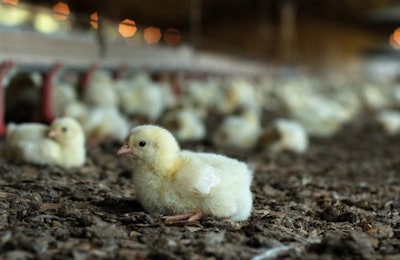
The poultry industry needs to focus its consumer-facing message on the environmental benefits of modern agriculture, before the activists strip that opportunity away.
Slow-growing disaster
The industry is doing its part in protecting Earth’s finite resources by steadily producing more affordable, quality protein using less resources. Slower growing broiler breeds, and cage-free layers on the egg side, won’t deliver the same benefits. Both options, being pushed on producers by activist pressure, will require more resources to produce the same, or a smaller, amount of protein.
The National Chicken Council, working with Elanco and Express Markets Inc., produced a study quantifying the shocking consequences adoption of slower growing breeds would bring. Slower growing broilers take longer to reach market weight and yield less mean than conventional birds. The longer grow out period means more feed (and land needed to grow that feed) and water are needed while the amount of manure produced and production costs increase. The smaller yield will require more birds to meet existing and future demand which, in turn, compounds the problem.
A road map from the egg industry
The study is a good start. But, to elevate the message, the industry needs to partner with credible, third-party environmental organizations to quantify the potential impacts caused by slower growing breeds. Consumer research shows trust is high in those independent organizations. Their autonomous conclusions would bolster a sustainability argument against a breed switch and help sway the vast, moveable middle of consumers.
The egg industry, grappling with its own colossal switch to cage-free production, is setting a good example by working with the World Wildlife Fund to study the sustainability of various types of egg farming – including cage free – to find out which method is best for the Earth in the long run. This approach should be emulated.
As the environment and climate become more significant political issues, it’s possible the environmental message will become more relevant with the consumer than noise made by activists. Will a slow-growing bird look as good when consumers know it degrades the Earth faster than a conventional bird and costs more? We’ll see.


















